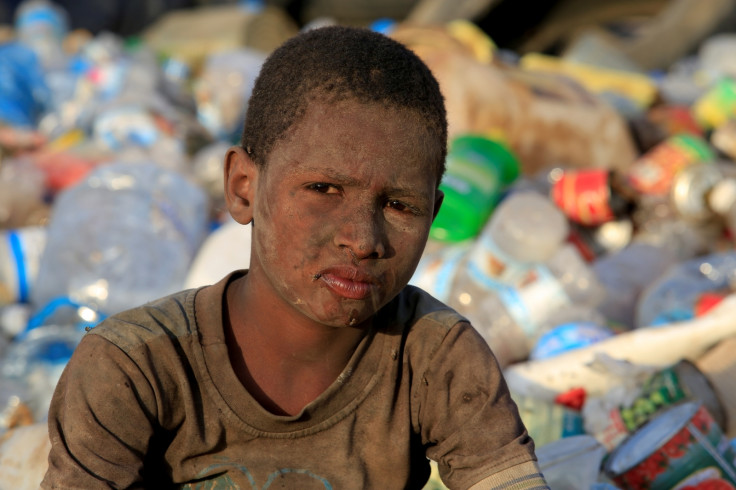The number of people at risk of starvation intensifies across 22 countries worldwide
The World Food Programme reported acute food insecurity is set to worsen over the coming months, with 18 hunger hotspots having been recognised as countries at the highest alert level.

The World Food Programme (WFP) reported that food insecurity is set to intensify across 22 countries. Out of the 22 countries, the WPF has recognised 18 "hunger hotspots" where humanitarian aid is critical in order to prevent starvation and death.
Due to severe movement restrictions of people and goods in Sudan, Burkina Faso, Mali, and Haiti, the food crisis is set to elevate. These countries have recently become part of the 18 hotspots that are already on the highest alert level. The countries already considered to be on the highest concern level include South Sudan, Yemen, Afghanistan, Somalia and Nigeria.
In the coming months, the acute food insecurity situation in these regions is predicted to worsen, given that parts of these populations are already facing life-threatening food shortages and extremely aggravating factors.
Pakistan, Ethiopia, Kenya, the Democratic Republic of Congo, the Central African Republic and the Syrian Arab Republic are also recognised as countries at the highest concern level.
It was reported that parts of the population in these "hunger hotspots" will likely be victims of their lives and livelihoods being endangered by weather extremes and a severe deterioration of food products.
Weather extremes, like Cyclone Mocha that devastated parts of Myanmar and Bangladesh, remain a significant factor that heightens the threat of starvation crises in the 18 hunger hotspots.
The world is witnessing an alarming rise in hunger.
— Cindy McCain (@WFPChief) May 29, 2023
Time is running out – and the stakes have never been higher. We need urgent action to save lives, empower communities to adapt to climate extremes & avert famine now.
The latest Hunger Hotspots report: https://t.co/CxHm1Xqqvp pic.twitter.com/4TnQKbTDnE
In Myanmar, food shortages are already at their peak, after Cyclone Mocha destroyed essential food stocks in townships and displacement sites.
Monitoring the impact of heavy rains, tropical storms, drought, cyclones, and increased climate variability on production is crucial.
El Nino, which defines unusually warm water in the Pacific Ocean, has been forecast with an 82 per cent chance of returning in May-July 2023. The likelihood of El Nino is raising fears of severe climate hazards affecting vulnerable regions in the central and east Pacific.
Lebanon, El Salvador, Nicaragua, Malawi, Guatemala and Honduras are also considered to be part of the critically vulnerable hotspot countries.
The root causes of the intensified starvation threats are conflict, climatic extremes, and economic deterioration.
Amid the cost-of-living crisis, economic concerns and low currency reserves that restrict imports continue to intensify hunger scenarios in most countries.
The current conflict in Sudan has disrupted livelihoods, such as agricultural activities and product exchange, as people are forced to flee the region, are directly attacked, or face movement restrictions.
"The use of explosive ordnance and siege tactics in several hunger hot spots continues to push people into catastrophic levels of acute food insecurity," the WFP report stated.
Eddie Rowe, WPF's country director in Sudan noted in a statement: "A window opened late last week which allowed us to start food distributions. WFP must do more, but that depends on the parties to the conflict and the security and access they realistically guarantee on the ground."
HUNGER HOTSPOTS:
— World Food Programme (@WFP) May 29, 2023
🔴A new report warns urgent assistance is required to protect lives and livelihoods and increase access to food.
🔴The report identifies 18 regions where people are at the most risk of extreme hunger and malnutrition.
🔗https://t.co/HOFGtpjJ5i pic.twitter.com/QbTFX0yyDf
Humanitarian access remains limited, due to organised violence and conflict in some countries, together with restrictions on movement and administrative impediments.
The UN reported that 258 million people faced food shortages in 2022. The rate has continued to increase by 34 per cent since 2021.
David Beasley, the former executive director of WFP, responded to this figure, stating: "That was before Ukraine, so this report doesn't really include all the countries in the world. So, the real number is 375 million people on planet Earth that are marching towards starvation."
He added: "It's going to get worse in the next 8-12 months. You will have starvation, you will have destabilisation of nations, and you will have mass migration."
"The world needs to understand how fragile the planet is and how the poorest of the poor around the world are really struggling right now," urged the former executive director of WFP.
© Copyright IBTimes 2025. All rights reserved.






















